Elegance, Palette and Sun at Midnight
It is always an important event, but I not only enrich the panorama of contemporary music, but also open a new vision with which to shape and understand the essence of our “Zeit-geist”. Last Wednesday, January 24, we were able to enjoy the premiere of “Eternity of the Instant”, by the composer, soprano and director Pilar Jurado. Although the title may seem somewhat pretentious or unnecessary, it stems from an exquisite compositional sense that stimulates sensory fruition, a dance of melodic designs and timbral configurations that provide brilliant contrasts and expressive orchestrations. In the final movement of the interpretation, apparently inappropriate to discuss the composer, showing her beautiful voice colour and her expressive vocal strength, she was gratefully disturbing.
I believe that, certainly, the director is the instrumentalist and that the instruments are the orchestra. On the other hand, the sound of the Helsinki Philharmonic Orchestra, known for its magnificent recordings of works by Jean Sibelius, and the brilliant Rautavaara (both summits of the Finnish composition), does not disappoint at all by the impeccable execution, reflecting the tense discipline and the brilliant colour of the orchestra. No one should forget that in Helsinki the Sibelius Academy is located, one of the most important musical institutions in the world.
What was premiered at the concert was the cello suite by Elgar, a heart-felt composition in which the soloist Johannes Moser, showed only sublime artistry.
PILAR JURADO PREMIERED “ETERNITY OF THE INSTANT” WITH A GREAT HELSINKI PHILHARMONIC ORCHESTRA
The public’s attention, which applauded among movements of the work, something that provoked the conductor’s indication (as he also did with the sound of the mobile phones). What does it cost to turn off the mobile? What does it cost to have a program sight and count the number of movements of a work? Is it so necessary, the instant and measurable habit of applauding? And is it really sincere? Another pedagogical question is that of the services to Thielemann in Las Palmas (Hugo Wolf specialist) and that I suspect is also used to silence the public in order to muffle the sentiment, and instead of four seconds, make one think that perhaps it would be better to realize that the Festival of Music of Las Palmas is also a day less effervescent than usual.
But, we still applaud the music fans, and Schoenwald offered, outside the program, two of his pieces: “Intermezzo” in A flat major and “Karelia” of Sibelius. The present evening was concluded with the musical finlandesa desa at the Festival and at the sight of the capital from “Karelia” dissolved with the light of the sun at midnight that illuminates the landscapes before the patriotic time.
There was a skillful but sincere interpretation, and the second movement, Symphony 6 “Pathétique” of Tchaikovsky, another extraordinary, very representative and beloved work by the author, composed by the artist in his last manner. But all the context in which we live is much more contemporary style, condensed in this symphony is his essence, the final incorporation of the spirit, can occur, how he encounters the personalities of the momentous composer who composed the personalities of the momentous composers of the compositions. For me, the most unsavory, terrible themes that suggest the human condition, and the most felicitous ones that speak of the first, beautiful existence.
Lamentable and shameful was the interpretation.
David Moratón
El Dia, Tenerife,Spain
26 January
2007

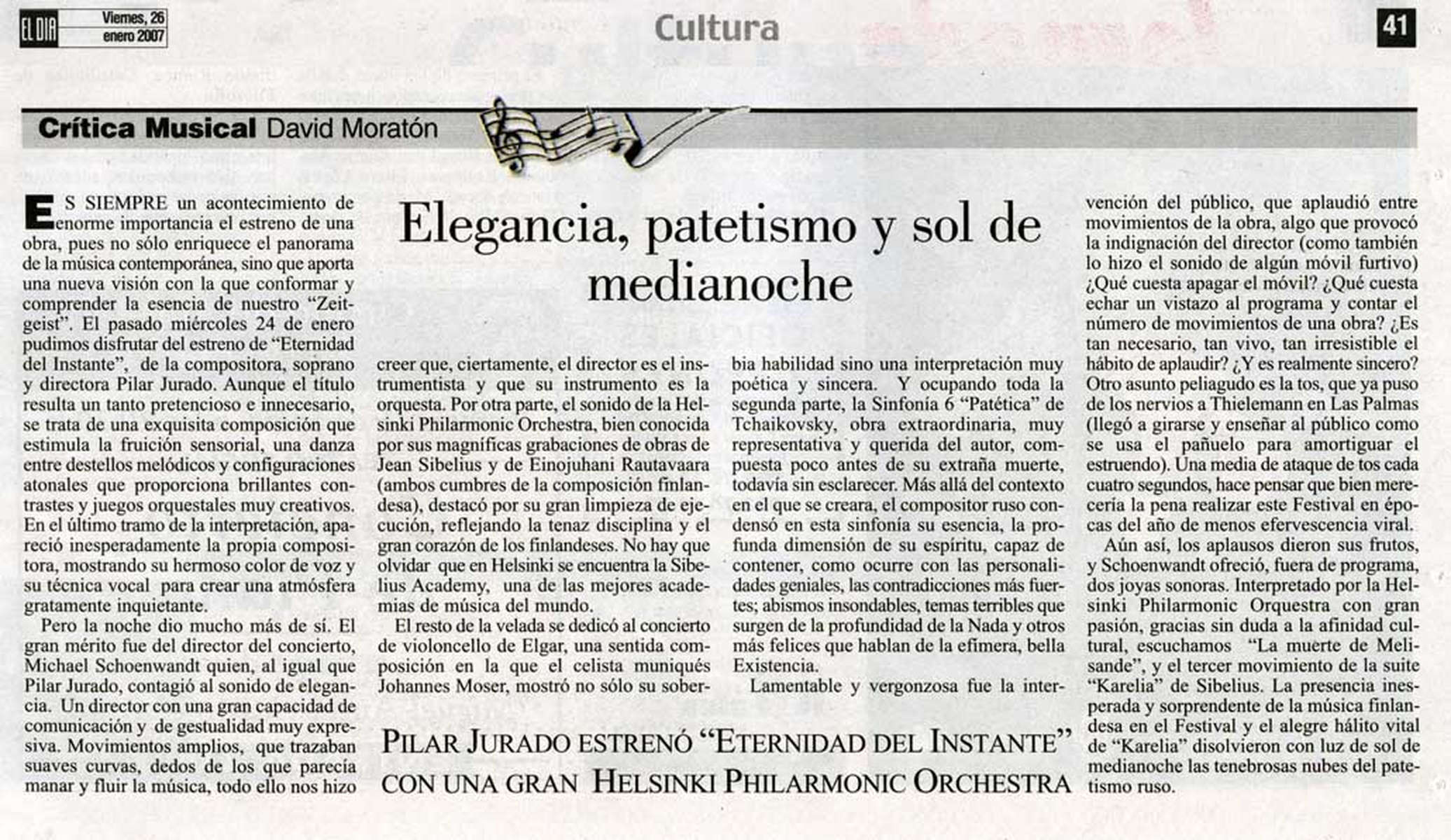
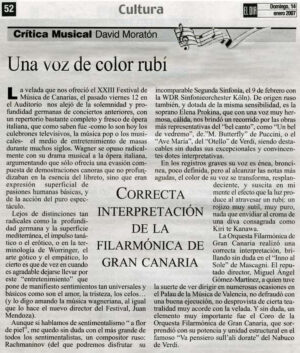
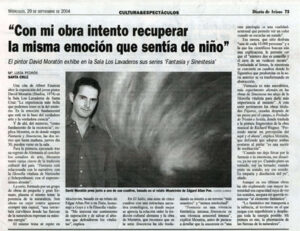
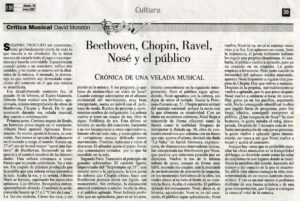
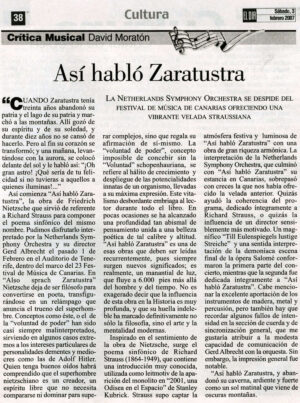
Reviews
There are no reviews yet.